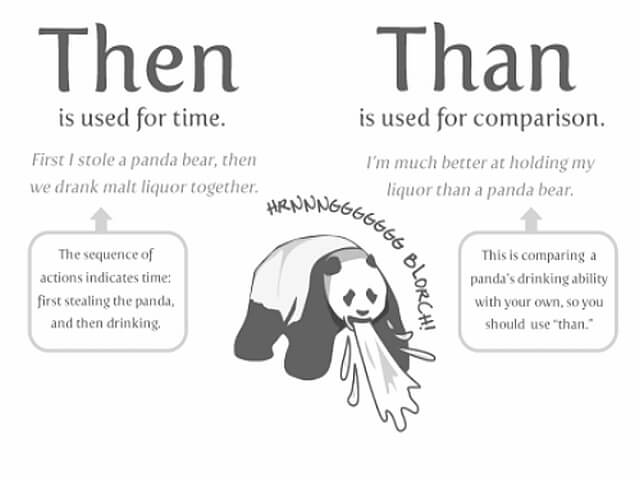Learning English for beginners doesn’t have to be hard or unpleasant! It all depends on our attitude and the method of learning English we decide on.
Learning English for Beginners by Shakespeare
I was inspired to write this post about learning English for beginners by an inscription on one of London’s Victorian buildings.
The building is called Beaufoy, it was built in 1907 as a so-called “ragged school” – at the beginning of the 19th century was such a pro-social movement, when rich Englishmen set up the first free schools for poor children “in rags” (old, dirty clothes).
Thanks to this, after work (sic!) street kids could come to school, learn to read and write and then they were sent to the colonies…

What struck me the most in the stories from those days was the cleaning of chimneys.
In the era of the industrial revolution, they were innumerable, so children who could fit up the chimney from the inside were used to clean them. Sometimes, however, they got stuck in there. Then, to help them, a furnace was lit and the warm air shot them up….

But that’s not the point. The inscription reads:
“Those that do teach young babes, do it with gentle means and easy tasks”.
This is actually a quote from Shakespeare’s play “Othello”(Act IV, scene 2).
In my opinion, this wisdom, although probably not fully applied in a disciplined Victorian school, is still applicable to our study of English for beginners and beyond.
Learning English for beginners doesn’t have to be unpleasant!
There are people who think that only when it’s bad is it good. I am not one of them. There is no reason to suffer.
It is largely up to us to decide whether we like something or not. In this way, it can be said that we even “change” this thing.
I can complain that “I don’t like to learn.” I can also say to myself “I like to learn.” Probably for most of us, both statements are true and false at the same time.
So why lose and feel bad when we can win and feel good? Let our educational glass be half full and not half empty!

Learning English for beginners can be fun!
Ensure that you study in a pleasant place.
Use nice and aesthetic methods.
Think about how cool it will be to know English, not about how much you don’t understand.
Choose good-looking English teachers so it will be nice to think about the next lesson! 😉
Everyone can find something to make learning English for beginners an enjoyable rather than unpleasant experience!
Above all, however, finish learning while it is still enjoyable. That way you’ll be happy to get back to studying the next day!

Learning English for beginners doesn’t have to be difficult either!
Einstein is said to have used to say that if you can’t explain something to a five-year-old it means you don’t understand it.
The same will happen with English. If you don’t understand grammar it means that you are using the wrong materials (or you are sleeping in lessons, well there is no help for that!). That’s the point of this relief – slowly but effectively we will make people out of even these obdurate people. 😉
Too difficult material will only discourage you. Or perhaps not so much that the material is too difficult, but that it moves too quickly to the next topics.
The 21st century is crazy, everything is rushing and constantly changing. We think that because we have read something once it means that we have already understood and remembered it.
However, our brain has not yet entered the digital age; rather, it still operates in analog. We need time. We need repetition. It’s not difficult. You just have to know that it’s the way it is – instead of getting frustrated that it’s no different.
However, learning English for beginners should be regular
In the post about effective English learning, I mentioned the forgetting curve and building associations. The most important thing, however, is regular repetition. Of course, it is good for them to be at appropriate intervals. But that’s nothing new here, is there?
If we study every day, or at least several times a week, it will give the best results.
Forging vocabulary before an exam or a trip is of no use. If we want to learn English, all we have to do is resolve that from now until the final victory I will study, say, 15 minutes of English every day.
The key to success is short and frequent, enjoyable but regular sessions.
On the bus, before bed, even on the toilet, anywhere and anytime. But regularly. Such English learning for beginners must be successful!
By the way, this is generally a good way to achieve any goal in life!
BTW you can even learn English from jokes!
Never give up!
From what I observe of my students, learning English for beginners faces two major obstacles.
The first is the aforementioned lack of regularity.
Unfortunately, as I often say, “the English language will not learn itself.”
Without (pleasant and regular, but still) work, nothing will come of it.
Forget about miracle methods, English on the weekend, learning in your sleep. Any great goal requires perseverance – not a dramatic spurt, rather a pleasant habit.
However, it may take some time to build a habit . Then it is indeed worth a little discipline.
No moral pressure or drama. It is simply necessary at first to take the lazy kitty of our brain by the furry neck and – gently but firmly – plant it at the desk. Once – usually after three weeks – a habit is formed, learning will happen on its own.
However, before this happens, the lazy kitten will say “I’m so stupid”, “I’ll never learn English”, “I don’t understand any of this”. Don’t listen to him! It’s just laziness!
Now that you can speak your own language, you will surely be able to learn relatively simple English language!
If you just want to learn English, success is only a matter of time!

Don’t worry about grammar just surround yourself with language
Learning English for beginners is unfortunately often based on “words” and “grammar.”
This is not a wise approach.
Grinding grammar could possibly be an impractical pastime for advanced students. As beginners, we don’t need much of it. It is important to surround yourself with the English language, to listen to its melody. Teach the brain that it is important to us.
Scientific research moreover clearly shows that learning vocabulary and grammar is ineffective. It is best to learn whole sentences and phrases. Then we learn one and the other in a practical way! Like a child, we subconsciously assimilate all grammatical structures, instead of philosophizing about the linguistics.
Two cases of approaches to learning English for beginning students
1. Don’t learn English like David
David heard that people with English language skills earn more. It’s true.
So he decided to learn English!
He didn’t want to spend money, so he read a few pages on the Internet about it. He even downloaded a vocabulary list for himself and read some texts on grammar.
As the vocabulary somehow didn’t want to enter his head, and the texts on English grammar were boring and incomprehensible, after a week he decided that he would never learn it.
“I’m a total language anti-talent,” he said turning on the TV.
David did not learn English. Don’t be like David.

2. Learn English like Karen!
Karen knows she doesn’t have much time. However, English is important to her, not only for professional reasons – she wants to be able to help with her daughter’s lessons, she doesn’t want to stress out on trips, and she knows that learning languages is healthy for the brain.
That’s why she decided to plan her English studies for herself.
She rightly decided that simple English phrasebooks would be best for a beginner. However, it is important that they are with pronunciation. That’s why she installed the Speakingo app on her phone and repeats one lesson to herself every day on the way to work.

She liked Speakingo’s online English course because it involves pleasant conversation in English with whole, simple sentences. They contain all the grammar we need and 2,000 of the most popular English words, the knowledge of which allows you to understand 90% of the conversation.
Best of all, however, the sentences are interesting, the pictures are pretty and the fact that the program understands what she is saying to him never ceases to surprise her. He also sits down in front of his computer at home a few times a week to relax pleasantly after work in such a productive way.
She never considered that she was somehow particularly “learning” English.
After a year, however, she was surprised at how much she was able to understand on vacation in Italy – it turned out that she spoke better English than they did!
A nice first success, and it was just learning English for beginners after all!
Now it will only be downhill from here!
Karen is smart. Be like Karen!
And what does or did your English learning for beginners look like? Share your experiences and best practices in the comments!
























